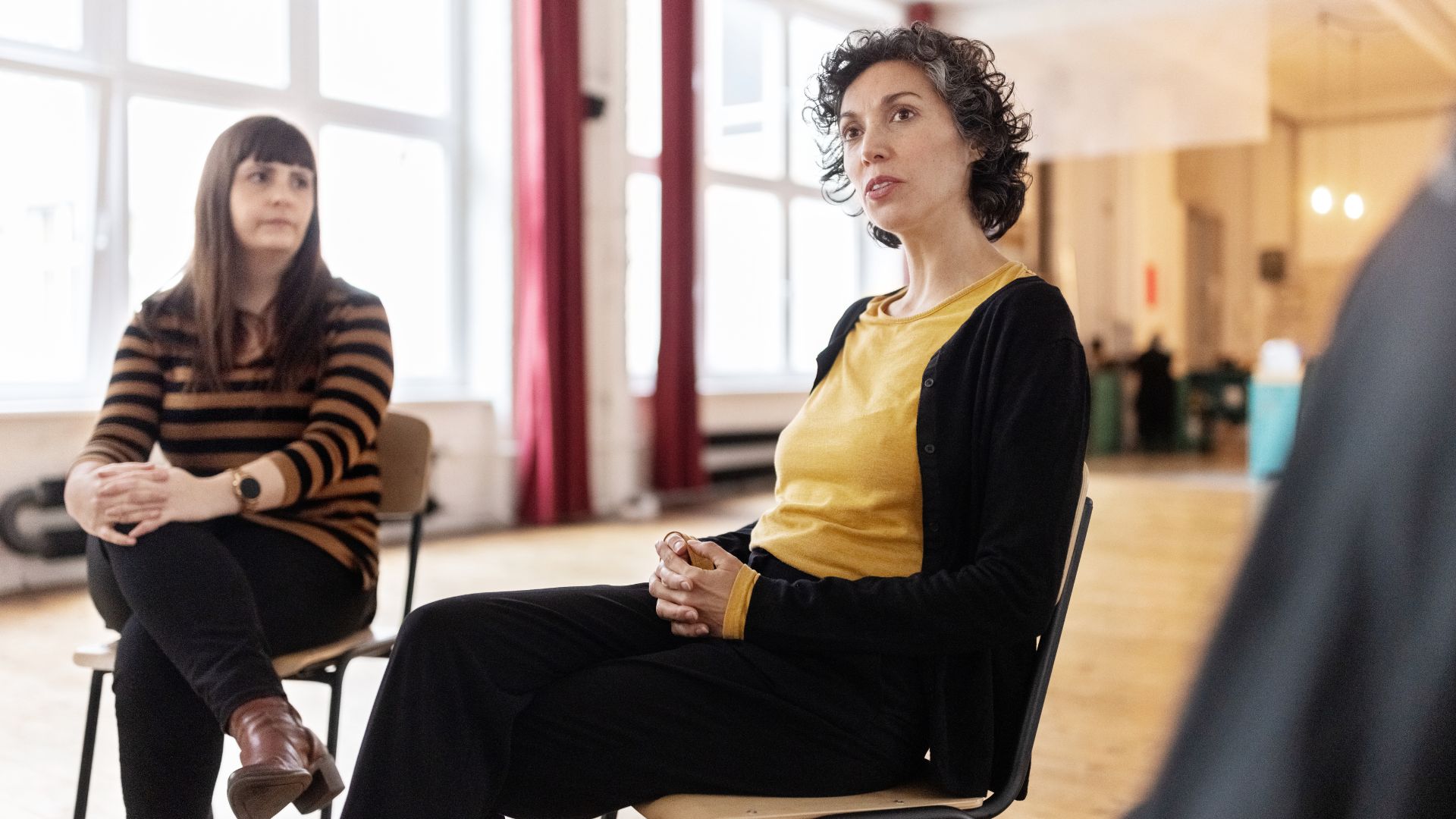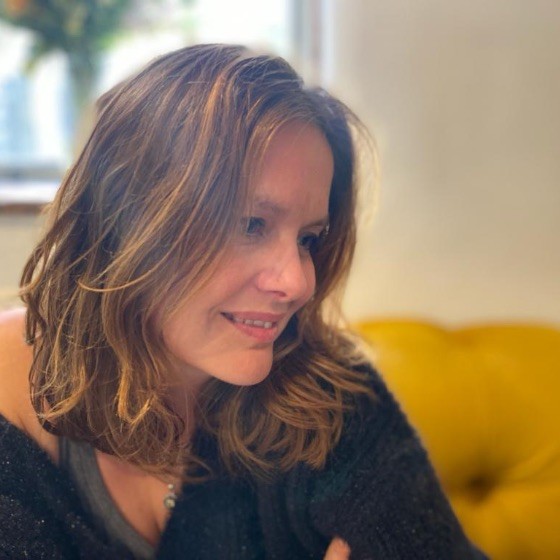Eating disorders in midlife are on the rise - is menopause the cause? 3 women share their stories
Being older doesn’t make women immune to disordered eating, and perimenopause can be a particularly difficult time


Sign up to our free daily email for the latest royal and entertainment news, interesting opinion, expert advice on styling and beauty trends, and no-nonsense guides to the health and wellness questions you want answered.
You are now subscribed
Your newsletter sign-up was successful
Want to add more newsletters?

Daily (Mon-Sun)
woman&home Daily
Get all the latest beauty, fashion, home, health and wellbeing advice and trends, plus all the latest celebrity news and more.

Monthly
woman&home Royal Report
Get all the latest news from the Palace, including in-depth analysis, the best in royal fashion, and upcoming events from our royal experts.

Monthly
woman&home Book Club
Foster your love of reading with our all-new online book club, filled with editor picks, author insights and much more.

Monthly
woman&home Cosmic Report
Astrologer Kirsty Gallagher explores key astrological transits and themes, meditations, practices and crystals to help navigate the weeks ahead.
Up to 3.4 million people in the UK are affected by eating disorders, but while we keep a watchful eye on our teens (with the assumption that adolescents are most vulnerable), it's not always so.
It's possible to develop one at any age, including during perimenopause, and the rates of eating disorders have increased among women in middle age in recent years.
There's also the chance that an eating disorder that was under control returns in middle age, with a study of 5,658 women finding that nearly 4% of women in their forties and fifties dealt with an eating disorder in the previous 12 months. In the year before that research, eating disorder charity Beat reported that 15% of calls to its helpline were from people 40-plus.
While it's not thought that menopause causes eating disorders, the timing certainly doesn't help. "Midlife is a time of immense change, and hormonal and physical changes impact how women feel about themselves," says Dr Lorna Richards, a consultant psychiatrist at Priory Hospital Life Works. "Eating disorders commonly develop around puberty, and the perimenopause represents a similar transition – albeit in reverse."
It's also the time that many women face other big life events like "children leaving home, caring responsibilities, and sometimes marital breakdown," says Dr Richards. "The cumulative burden can be overwhelming."
As a result, “eating disorders can become a trusted coping mechanism and middle-aged women can experience a resurgence of a pre-existing eating disorder or develop a new illness," she says.
3 women share their experience of eating disorders
"I felt I couldn't continue like this"
Tina, 55 and from Tayside, struggled with the re-emergence of anorexia during perimenopause. She is the author of Seconds to Snap – My Descent into Anorexia and tours schools to educate children about mental health.
Sign up to our free daily email for the latest royal and entertainment news, interesting opinion, expert advice on styling and beauty trends, and no-nonsense guides to the health and wellness questions you want answered.
"My anorexia began in my teenage years, triggered by a traumatic family event. I was sectioned at 16 with anorexia, and it took nearly four years to achieve some semblance of recovery. During COVID, while struggling with perimenopause, I reverted to old habits. I became obsessed with diet and over-exercising. My hormones were imbalanced, and my anxiety increased. It was an interesting time, as I realised that both instances were due to hormonal changes, which added to mental illness risk factors. There’s definitely a vulnerability for women during these times," she says.
"One day, I called the doctor. I was overheating, crying and feeling isolated. I empathised with women who’d taken their lives during this time. Exhausted and in a dark place, I felt I couldn’t continue like this.
"My GP immediately prescribed HRT [hormone replacement therapy] patches, and my friend shared something her doctor said: 'If I could give you something to stop these symptoms today, why would you not take it?' That was a game-changer. I started HRT, which helped me gradually turn my thoughts and behaviours around. I appreciate that for some women it’s not as easy, but for me it was life-changing.
"Insight and life experience are invaluable gifts. I had the tools and utilised them. I wasn't burdened with shame and could be more open.
"If you’re in a similar situation or notice behaviours that are concerning or reminiscent of past issues, please speak to your GP. They have ways to offer support. Additionally, I attended a Menofit group. It's unbelievably powerful to sit with others experiencing the same challenges and realise you’re not alone. It’s empowering and offers hope. Alongside HRT and online therapy, it helped me feel healthier again."

Tina says attending support groups was "unbelievably powerful", and it offered hope. Find one for you through the NHS.
"I'd like to move forward, and I don't know how"
Sylvia is 44 and lives in East Sussex. She’s autistic and has avoidant/restrictive food intake disorder (ARFID). It’s thought that up to a third of people with autism have ARFID. For more info, visit Arfid Awareness UK.
"I’ve had ARFID since childhood. In the 80s, it was called ‘fussy eating’. In my teens, I ate alone, mainly pieces of chicken or white bread. I only drank milk. I’m not sure it’s a direct result of being autistic, but it’s definitely made it more difficult. My autistic self is rigid in and I struggle with changes, so trying new foods is near impossible. When I’m mentally not feeling strong, my diet becomes more restrictive. I’m more aware and know what to do now, but I’d like to move forward, and I don’t know how. My goal is to eat out without restrictions and enjoy a healthy meal, including vegetables.
"Unfortunately, there’s not a lot of help for ARFID on the NHS, especially for adults. I was referred to a dietician, but I need psychological help. I probably need a team of people. My GP prescribed nutrition drinks for malnutrition – these got me back on track, but didn’t solve the problem.
“ARFID comes in different shapes and forms. Some people receive nutrition via a tube, and some only have two to three safe foods. In my teens, I was misdiagnosed with anorexia, but I’m a healthy weight now.
"On good days, I try to eat three meals, consisting of beige foods, with the occasional cucumber piece. On bad days, I eat whatever I’m able. I have three children, so I need calories to function. I’d love support, but at the moment it’s self-managed.
"If you have ARFID, be kind to yourself. You aren’t fussy. You have an eating disorder. Try to meet your daily calorie intake and remain a healthy weight. Explain to your GP, and explore neurodivergence as they often co-occur."
"EDs are cruel, no matter what your age"
Anonymous is 47. She found that the symptoms of menopause were masked by anorexia.
"My eating disorder hid the menopause. I’d go months without periods, which I put down to anorexia. I assigned night sweats to my diet. I spent days on the verge of crying, but attributed this to life’s challenges. It was only after an osteoporosis diagnosis and blood tests that I learned I was post-menopausal. It was a shock, but I felt grateful. I was fighting many battles, and menopause was one I didn’t need.
"I didn’t realise I had an eating disorder until 2021, when I weighed myself and couldn’t believe how low my weight was. I had a psychiatry assessment and learned that if I didn’t gain at least 2.5kg in a month, I’d be admitted to an inpatient unit 100 miles away (there’s no provision in our county). If I didn’t agree, I’d be sectioned. With dietitian and family support, I avoided hospitalisation, but everyday stresses continued. I leaned back into restrictive eating. It wasn’t about body image or the scales. It was about being too anxious or scared to eat.
“Cognitive Analytic Therapy helped me understand my need to restrict, but didn’t give me the energy to fight the disorder. In 2022, an osteoporosis diagnosis signalled what a destructive force it was. Until then, I denied the damage it was doing, but crumbling bones were a reality.
"We decided I’d benefit from a specialist service. The model worked; intensive therapy, supported mealtimes. I couldn’t stay longer than 12 weeks, so afterwards I had occupational therapy in the community. I currently have trauma therapy for PTSD and can see how trauma links to anorexia.
"EDs are cruel, no matter what your age. In middle age, when we have responsibilities, it can be hard to prioritise ourselves. The only times I’ve made progress are when I’ve asked for help and focused on recovery. Anorexia makes me feel shameful and embarrassed, but I recognise I can’t do it alone.
"I’d encourage anyone living with one to seek help professionally, online or with friends and family. If your friend or family member has one, please be patient. An eating disorder is never chosen."
Can menopause lead to an eating disorder?
While menopause isn't an established cause of eating disorders, the physical and mental symptoms of menopause can be a trigger. "Menopause can bring changes to body shape, hair, skin, energy levels, metabolism, libido and weight - all of which can affect women’s self-esteem and body image,” says Kerrie Jones, a psychotherapist, founder and CEO of Orri. "And if past trauma (e.g. abuse or neglect) wasn’t fully processed, midlife stress can trigger disordered eating as a way to numb or control feelings.”
The most common eating disorders in middle age are binge-eating disorder (BED) and anorexia. Bulimia nervosa is also prevalent, says Kerrie.
Where to find help
If you think you’re developing an eating disorder, or one is recurring, see your GP or contact Beat on 0808 801 0677. "Eating disorders reduce, restrict and silence people, so speak to a professional," urges Kerrie. "The prospect of treatment might feel daunting, but recovery’s possible."
It's completely possible to have a healthy relationship with food again, but the earlier you get help, the better, says Tom Quinn, the director of external affairs for Beat. This will give you the best chance of making a full recovery.
Debra Waters is an experienced online editor and lifestyle writer with a focus on health, wellbeing, food and parenting. Currently, she writes for Woman&Home, NOON, and Psychology Now. Previously, Debra was digital food editor at delicious magazine and MSN. She’s written for Everyday Health, Great British Chefs, loveFOOD, M&S Food, Time Out, The Big Issue, The Telegraph, What to Expect, Woman and Woman’s Own. Debra is also an essayist and short story writer.
You must confirm your public display name before commenting
Please logout and then login again, you will then be prompted to enter your display name.
